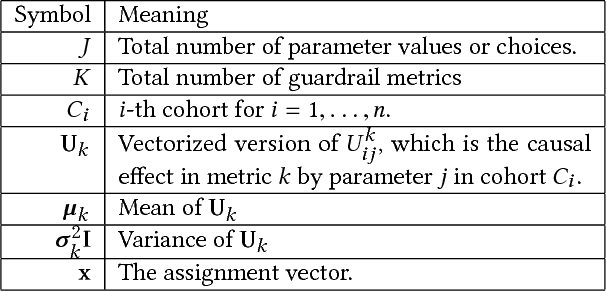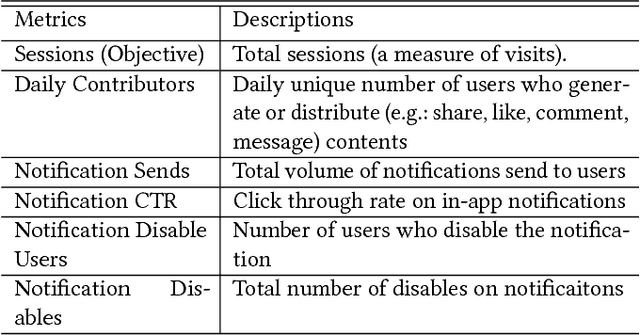Personalization and Optimization of Decision Parameters via Heterogenous Causal Effects
Paper and Code
Feb 04, 2019



Randomized experimentation (also known as A/B testing or bucket testing) is very commonly used in the internet industry to measure the effect of a new treatment. Often, the decision on the basis of such A/B testing is to ramp the treatment variant that did best for the entire population. However, the effect of any given treatment varies across experimental units, and choosing a single variant to ramp to the whole population can be quite suboptimal. In this work, we propose a method which automatically identifies the collection of cohorts exhibiting heterogeneous treatment effect (using causal trees). We then use stochastic optimization to identify the optimal treatment variant in each cohort. We use two real-life examples - one related to serving notifications and the other related to modulating ads density on feed. In both examples, using offline simulation and online experimentation, we demonstrate the benefits of our approach. At the time of writing this paper, the method described has been deployed on the LinkedIn Ads and Notifications system.
 Add to Chrome
Add to Chrome Add to Firefox
Add to Firefox Add to Edge
Add to Edge